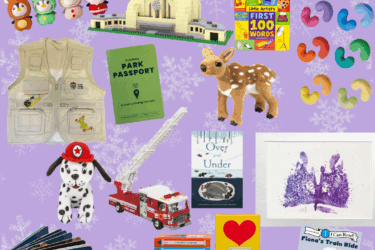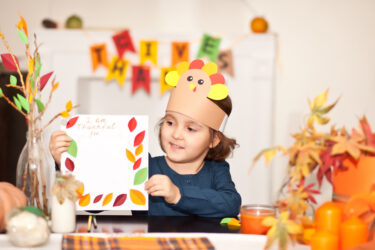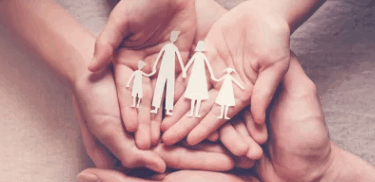When visitors stop by, 2-year-old Michael Cornaglia proudly shows off his toddler bed.
 “My bed,” he says. “My daddy and me put it together.” Helping to assemble the bed – finding screws, even hammering a bit – gave him a sense of pride and ownership, says Michael’s mother Mary Anne Cornaglia, and made assembling the bed easier for Cornaglia and her husband. His participation also smoothed his transition from crib to bed.
“My bed,” he says. “My daddy and me put it together.” Helping to assemble the bed – finding screws, even hammering a bit – gave him a sense of pride and ownership, says Michael’s mother Mary Anne Cornaglia, and made assembling the bed easier for Cornaglia and her husband. His participation also smoothed his transition from crib to bed.
For parents of energetic toddlers, getting anything done around the house poses a great challenge. For this, experts offer a simple solution: Have the little ones help out.
According to child development specialists, children as young as 18 months old can help with simple household tasks to the benefit of their self-esteem, cognition and social development. It’s also a win-win for parents: In the midst of their kids’ independent, “me-do-it” stage, they are teaching their children life skills and accomplishing a few necessaries.
“This age group is focused on autonomy and independence,” says Georgene Troseth, Ph.D., assistant professor of psychology at Peabody College at Vanderbilt, “which motivates them to try to master what big people do so they will be competent.” And, far from putting a child to work, household tasks offer fun and interesting ways for toddlers and parents to spend time together.
“Toddlers don’t differentiate work from play,” says Troseth. “If the activity looks interesting, it’s play to them.” Letting a youngster help with chores, she says, is a way to foster their learning.
Michael has been helping out around the house since he was old enough to walk, says Cornaglia. “I have a sippy cup for milk and one for juice in the refrigerator for him, and I put them on a shelf where he can reach them so he can be self-sufficient to an extent.”
Although “he’s not nuts about cleaning up his toys,” she says, Michael mimics her dusting with his own rag and cleans the TV screen with baby wipes. He helps to make his own bed, fluffing the pillows and picking up his stuffed animals, and he gets his own stepstool to reach the sink when he brushes his teeth. He is especially proud of his faux plant, which he “waters,” and shows to everyone who visits.
Benefits to Self-Esteem
Mary Anne likes to see the pride her son feels when he helps out: “The more responsibility I give him – indicating that he’s a big boy and can do these things – the more he’ll want to do.”
True, says Robert Needlman, vice president for behavior and development at the Dr. Spock Company in Ohio. “When 2-year-olds are cooperative and get praised for it, they feel good,” says Needlman. “The concept of ‘I do things and my mom likes it,’ is something that 2-year-olds grasp.”
This, says Needlman, is a building block for responsibility, cooperation and feeling like a valuable – and valued – member of the household.
“People think of 2-year-olds as oppositional – they like to say ‘no,’ and they like to have their own way, but the truth is they are really ambivalent,” he says. “They like getting praise, so positive reinforcement can turn an opposition around.
“You can’t say ‘Pick up your toys’ to a 2-year-old. Their attention span is too low. To get toddlers to pick up their toys, you need to say: ‘Let’s do it together.’ You say, ‘We’re picking up; isn’t this great? This is so much fun.'” Over time, they learn that picking up after themselves is something to feel good about.
And that’s the goal. A very strong impulse in toddlers is “I can do it myself.” And, with guidance, they can. Then, says Needlman, “The smart parent gradually and smoothly backs off as the child begins doing more and more. Early game-like interchanges between parents and children are one way children learn to comply with parental wishes, because they receive praise for complying.
The main reason children do what their parents want them to do is to gain approval. It is not, primarily, to avoid being criticized or punished. The positive motivation is the result of playful, loving interactions, and it is far and away the most powerful force in discipline.
At his office, Needlman keeps a box of toys on the floor. At the end of a visit, he says to a child, “Let’s put the toys back in the box.” To the parent, he explains, “This is a great way to help Susie learn to be cooperative.”
It Takes a Little Time
Since before her first birthday, Thea Applebaum Licht has been helping her mother, Gabrielle Applebaum, with laundry. “It takes 75 times longer,” says Applebaum.
“I give her the laundry and she puts it in. For the dryer, I’ll give her a piece [of clothing] and she puts it in.”
For supermarket trips, Applebaum will draw items on a list for 2-year-old Thea to find at the store. Then she helps unpack the bags when they get home. She has a child-sized broom for sweeping. She “helps” make dinner using plastic utensils. And while Applebaum appreciates the effort, it can be frustrating. Last spring, Thea helped to plant bulbs in the garden. Applebaum explained that you make a single hole in the dirt for each bulb, but Thea couldn’t understand that one hole was enough.
“She does whatever I do,” says Applebaum, “so whatever activity I’m attempting to complete, she tries to do it.” Even if the task takes longer and it isn’t done exactly right, says Applebaum, “I want her to feel like she can do it. And I’ll say ‘Thank you’ and ‘You really helped me’ and ‘Wow, I can’t believe you know how to do that’ … I try to praise the intent.”
“Working with an adult gives children valuable skills and a sense of master,” says Troseth. “It also is a great arena in which to learn about cause and effect. For instance, we might point out that: ‘There are toys on the floor. If we step on the toys, they may break or we might hurt our feet.’ We can set up simple situations to help young children learn about the extrinsic and intrinsic rewards of work: ‘Let’s put all your toys in the toy box to keep them from getting broken. When we’re done, we can have popsicles.”‘
When They’re Ready
Jeanie Giuliani hopes to instill good habits and confidence in her 2-year-old son Christian by allowing him to help out around the house. “At first it was accidental. Then he became aware that he could be of help,” says Giuliani. Christian helps by putting things in the trash, taking objects where they need to go and putting his clothes into the wash. “Lately he has started taking off his own jacket,” says Giuliani. “That has been a big help except that I always find it on the floor. We need to work on that.”
“In thinking about chores,” says Troseth, “it’s important to remember toddlers’ short attention spans and limited self-control over both their emotions and their movements.”
So what are some good chores to start a toddler off with? Troseth suggests that since toddlers love matching, filling and dumping containers and using tools, think of ways to capitalize on their interests. “Most 2-year-olds probably can manage simple, brief chores like picking up toys and hanging coats.” Other ideas might be matching socks while you fold the laundry or filling up the pet’s food bowl.
Chores are part of life, and when everyone pitches in, they become part of being in the family. “Most importantly, don’t expect perfection,” she says, “and make sure they know how much you appreciate the help.”
Jennifer Baldino Bonett is a freelance writer.
Turn Work Into Play
- Avoid making verbal or attitudinal distinctions between work and play. Your work can be your play. It’s a shift in your mind that you can find your work meaningful and fun. Work may have negative connotations for adults. For children, it doesn’t.
- Have simple household items on hand that allow a child to feel helpful. Pots and wooden spoons, child-sized tools and furniture, step stools, placemats with pictures of what goes where, cabinets children can access and hooks to hang up clothes.
- Build household chores into your daily routine. In the course of the day, allow children to try different chores like dusting and sorting laundry.
- Cook with your child. Children learn the vocabulary of the kitchen, are introduced to mathematical concepts and have the opportunity to see a project from beginning to end.
- Allow time to do household tasks together. You could do it in 20 minutes, and it takes children two hours. Try not to rush them.
- Acknowledge their efforts, not necessarily their accomplishment or how well they did it. Reinforce attributes of perseverance, concentration, determination, creativity, imagination and the ability to see something through to the end.
Source: Beverly Levitsky, director of the Child and Parent Center at Pennsylvania Hospital in Philadelphia.




